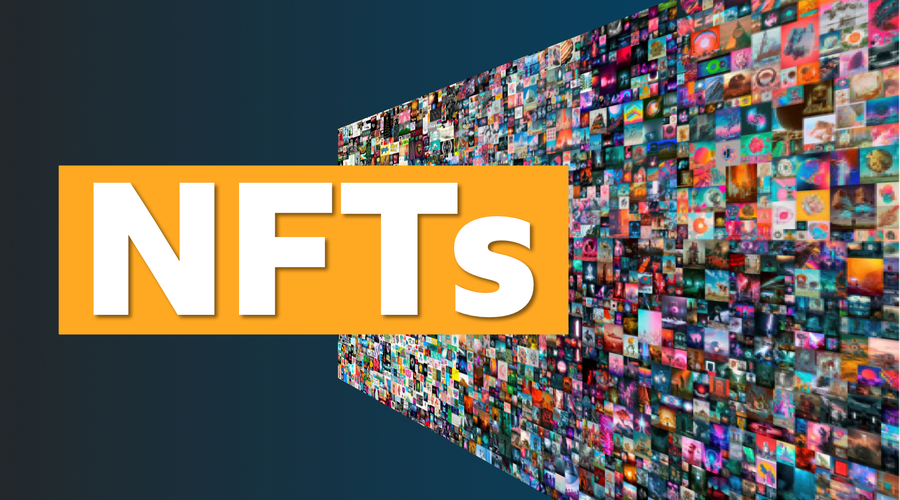Introduction
In recent years, Non-Fungible Tokens (NFTs) have gained significant popularity as a new form of digital asset. NFTs represent unique items or digital content, such as artwork, music, videos, or collectibles, and are bought and sold on various online platforms known as NFT marketplaces. However, with the rapid growth of this market, concerns about consumer protection and regulatory oversight have emerged. This article explores the importance of NFT marketplace regulations and the need to protect consumers in this emerging industry.
Importance of NFT Marketplace Regulations
Protecting Consumers from Scams and Frauds
As NFTs become increasingly valuable, the risk of scams and frauds targeting unsuspecting buyers also rises. Without proper regulations, it becomes easier for unscrupulous individuals to create counterfeit or unauthorized NFTs, leading to financial losses for buyers. Regulations can help establish standards for authenticity verification, ensuring that consumers are protected from fraudulent activities.
Ensuring Transparency in Transactions
One of the key challenges in the NFT marketplace is the lack of transparency in transactions. Buyers often face difficulties in determining the ownership history, provenance, and rights associated with an NFT. Regulations can address these challenges by requiring NFT marketplaces to maintain detailed transaction records, providing buyers with the necessary information to make informed decisions.
Preventing Money Laundering and Illegal Activities
The anonymous nature of some NFT transactions makes them susceptible to money laundering and other illegal activities. By implementing regulatory frameworks, authorities can enforce KYC (Know Your Customer) and AML (Anti-Money Laundering) compliance measures, reducing the risk of illegal activities within the NFT ecosystem.
Current Challenges in NFT Marketplace Regulations

- Lack of Standardized Regulations
One of the significant hurdles in regulating NFT marketplaces is the absence of standardized regulations. As the industry is still in its early stages, different jurisdictions have varying approaches to NFTs, leading to inconsistencies and confusion. The lack of harmonized regulations makes it difficult for market participants to operate with clarity and inhibits the development of a robust global marketplace.
- Jurisdictional Issues
NFTs operate in a decentralized digital environment, transcending traditional boundaries. This decentralized nature poses challenges for regulators to establish jurisdiction and enforce regulations effectively. Determining the appropriate regulatory framework becomes crucial to ensure consumer protection without stifling innovation.
- International Cooperation and Harmonization
Due to the global nature of NFT marketplaces, international cooperation and harmonization of regulations are vital. NFT transactions often transcend national borders, making it challenging to enforce regulations and protect consumers effectively. International collaborations among regulatory bodies, industry associations, and technology experts can help develop consistent standards and guidelines that transcend jurisdictional boundaries.
- Technological Advancements and Regulatory Adaptability
The rapid pace of technological advancements in the NFT space poses challenges for regulators. As new features, functionalities, and use cases emerge, regulations must remain adaptable to keep up with the evolving landscape. Regulators need to engage with industry experts and monitor technological developments closely to ensure that regulations are effective and do not stifle innovation.
- Difficulty in Determining Ownership and Rights
Unlike physical assets, NFTs are digital assets that exist on the blockchain. This digital nature presents challenges in determining ownership and associated rights. Regulators need to address the complexities surrounding intellectual property rights, licensing, and ownership disputes to safeguard the interests of consumers.
Proposed Solutions for NFT Marketplace Regulations
Establishing Regulatory Frameworks
To address the challenges mentioned earlier, it is crucial to establish clear and comprehensive regulatory frameworks for NFT marketplaces. These frameworks should provide guidance on authenticity verification, transaction transparency, dispute resolution, and other critical aspects of NFT transactions. Regulators need to work closely with industry experts and stakeholders to develop practical regulations that balance innovation and consumer protection.
KYC and AML Compliance
Implementing KYC and AML compliance measures within NFT marketplaces can help mitigate the risks of money laundering and illegal activities. Market participants should be required to verify the identity of buyers and sellers, ensuring that transactions adhere to established regulatory standards. This not only protects consumers but also promotes trust and legitimacy within the NFT ecosystem.
Intellectual Property Rights Protection
NFTs often involve the sale and ownership of digital artworks and creations. To protect artists’ rights and intellectual property, regulations should address issues such as copyright infringement, licensing agreements, and royalties. Providing clear guidelines on ownership and the transfer of rights can help prevent unauthorized use of digital content and protect the interests of creators.
Dispute Resolution Mechanisms
Disputes can arise in NFT transactions, such as disputes over ownership, authenticity, or misrepresentation of an NFT’s characteristics. Establishing efficient and fair dispute resolution mechanisms can provide recourse for aggrieved parties. These mechanisms could involve independent mediators, arbitration, or specialized digital courts to resolve conflicts swiftly and fairly.
Standardizing Disclosure Requirements
To ensure transparency and protect consumers, NFT marketplaces should implement standardized disclosure requirements. Sellers should be obligated to provide comprehensive information about the NFT, including details about the creator, any associated rights or licenses, and any potential limitations or restrictions. Standardized disclosures enable buyers to make informed decisions and understand the full scope of their purchase.
Establishing Rating Systems and User Feedback Mechanisms
Introducing rating systems and user feedback mechanisms can enhance consumer protection within NFT marketplaces. Similar to popular e-commerce platforms, buyers can rate and provide feedback on their experiences with sellers and the quality of their NFT transactions. This promotes accountability, encourages fair practices, and allows buyers to make informed decisions based on the experiences of others.
Consumer Protection in NFT Marketplaces
Educating Consumers about Risks and Best Practices
As NFTs continue to gain mainstream attention, it is crucial to educate consumers about the risks associated with NFT transactions and best practices for safe participation. NFT marketplaces should invest in consumer education initiatives, providing resources, guides, and warnings about potential scams, price volatility, and the importance of due diligence before making a purchase.
Transparent Pricing and Transaction Details
To enhance consumer confidence, NFT marketplaces should promote transparent pricing and detailed transaction information. Buyers should have access to comprehensive details about an NFT, including its history, previous sales, and any associated rights or restrictions. Transparent pricing mechanisms can prevent market manipulation and ensure fair value for buyers.
Ensuring Authenticity and Provenance
Authenticity is a key concern in the NFT market, given the prevalence of counterfeit or unauthorized NFTs. NFT marketplaces should implement robust verification processes to ensure the authenticity and provenance of listed NFTs. This may involve working with independent validators or utilizing blockchain technologies for verification and certification.
Enabling Refunds and Returns
In situations where buyers receive NFTs that significantly deviate from their advertised characteristics or are misrepresented, mechanisms for refunds or returns should be in place. Establishing clear refund policies and dispute resolution processes can help protect buyers from dishonest sellers and foster trust within the NFT marketplace.
Balancing Innovation and Regulation in the NFT Market
The NFT market thrives on innovation, creativity, and technological advancements. However, it is essential to strike a balance between innovation and regulation to ensure consumer protection. Regulators should adopt a forward-thinking approach that encourages innovation while addressing potential risks and concerns. Collaborative efforts between regulators, industry stakeholders, and technologists can help establish effective and adaptive regulations that support the growth of the NFT ecosystem.
Risks Associated with NFT Investments
Educating consumers about the risks associated with NFT investments is crucial for their protection. NFTs can be subject to market volatility, speculative bubbles, and sudden drops in value. Consumers should be aware that investing in NFTs carries financial risks, and they should only invest amounts they are willing to lose. Promoting financial literacy and providing educational resources can empower consumers to make informed decisions and manage their risks effectively.
Secure Digital Wallets and Custodial Services
To protect consumers’ digital assets, it is essential to educate them about secure digital wallets and custodial services. Consumers should understand the importance of choosing reputable wallet providers and implementing robust security measures, such as two-factor authentication and encrypted storage. Additionally, educating consumers about the risks of sharing private keys and the importance of backup strategies can help prevent loss or theft of NFTs.
Case Studies: Examples of NFT Marketplace Regulations
Comparison of Regulatory Approaches in Different Jurisdictions
Different jurisdictions have taken varied approaches to regulate NFT marketplaces. This section examines case studies of regulatory frameworks implemented in countries such as the United States, the United Kingdom, and Singapore. By comparing their approaches and outcomes, valuable insights can be gained to inform the development of effective regulations in other regions.
Successful Regulatory Models and Their Impact
Highlighting successful regulatory models implemented in specific jurisdictions can demonstrate the positive impact of NFT marketplace regulations. Case studies of well-regulated NFT marketplaces and their effect on consumer protection, market growth, and investor confidence can provide valuable lessons for other countries and regions.
The Future of NFT Marketplace Regulations
As the NFT market continues to evolve, regulatory frameworks will also undergo changes. This section explores predictions for the future of NFT marketplace regulations, including potential developments in areas such as cross-border transactions, interoperability between platforms, and the integration of emerging technologies like Artificial Intelligence and blockchain. It discusses how regulatory measures may adapt to address new challenges and support the sustainable growth of the NFT ecosystem.
Conclusion
In conclusion, NFT marketplace regulations and consumer protection are crucial aspects of ensuring the long-term viability and trustworthiness of the NFT ecosystem. Establishing clear regulatory frameworks that balance innovation and consumer interests can protect buyers from scams, ensure transparency in transactions, and prevent illicit activities. It is essential for regulators, industry participants, and consumers to work collaboratively to shape the future of NFT marketplace regulations, fostering a secure and vibrant marketplace for digital assets.

